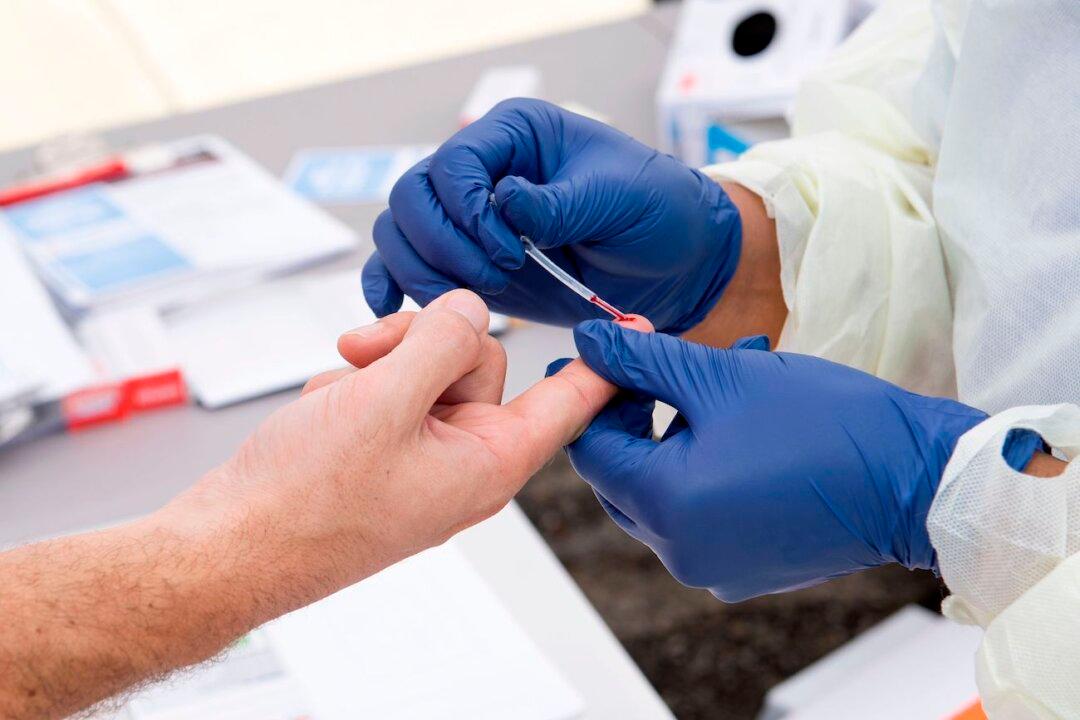The Centers for Disease Control and Prevention (CDC) said in new guidance that COVID-19 antibody tests could be wrong half the time and so should not be relied on to guide policy decisions regarding the deadly disease.
Antibody tests, sometimes referred to as serological tests, look for evidence of an immune response to infection and so can be used to determine if someone was sick with COVID-19, the respiratory illness caused by the Chinese Communist Party (CCP) virus.





